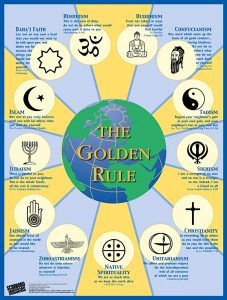HOMILY LENT WEEK 01 04
Balancing Prayer and Work
(Esther 14:1-14; Ps 138; Mt 7:7-12)
***************************************
Many years ago, Franciscan priest Richard Rohr was inspired to open a Centre for Action and Contemplation. While he has been prophetic throughout his long career beginning with the charismatic renewal (he founded the New Jerusalem Community in Cleveland), then become an expert in scripture, the Enneagram, social justice, spirituality and the men’s movement (he founded Illuman), this last initiative has proven to be the culmination of all his ministry. It includes daily meditations sent to thousands, and a Living School involving hundreds.
Just putting action and contemplation together is prophetic, and as it happens, fits perfectly with the readings today. The gospel especially invites us to lead lives of charity that are grounded in prayer and contemplation.
In the gospel, Jesus, gathered on a hillside (brings back memories of being in Galilee last December and on the Mount of the Beatitudes), teaches his disciples the importance of prayer.
Traditionally, there are four basic types of prayer: petition, adoration, praise and thanksgiving. In this gospel, Jesus stresses the importance of the prayer of petition: Ask, and it will be given; seek, and we will find; knock, and the door will be opened.
Regarding the phrase “seek and you will find,” I believe that means we are to seek the scriptures to find out what we should pray for ideally. Here, Jesus speaks of the “good things” that the Father will give us. In Luke 11:13, he is more specific: “How much more will the heavenly Father give the Holy Spirit to those who ask him.” The best of the good things the Father can give us is the Holy Spirit. In a way, all we have to pray for is the gift of the Spirit and all the rest will be taken care of. Can we trust like that?
Step 11 of the 12 Step program is very similar: “Sought through prayer and meditation to improve our conscious contact with God … praying only for the knowledge of God’s will for us, and the power to carry that out.” Can we trust like this also?
Esther in the first reading is a wonderful example of the prayer of petition well prayed. In her desperation, she first praises God and leans on her faith in God. Then she lives the classical definition of prayer – lifting up our minds and hearts to God. Finally, she pours out her need and prays from the heart her petition to God to save her and her people from a desperate situation engineered by a devious enemy. And God hears her prayer and answers it.
Then, the bottom line of the gospel adds a whole additional element to the reading – the need for action: “In everything do to others as you would have them do to you.” This is known as the Golden Rule, and is a call to action. Out prayer remains rather superficial until we, in a sense, become the answer to our own prayer, and try to live out the very thing we prayed for. That is what Esther does – having prayed, she then trusts in her intuition, summons up the gift of courage that God gave her through her prayer, and finds a way to reverse the scheme against her and her people.
Searching the scriptures can reveal very clearly what we are to do, once we have been grounded in prayer. The teachings of Jesus can be summed up as follows:
 Love God with your whole being (the Great Shema of Israel).
Love God with your whole being (the Great Shema of Israel).- Love your neighbor as you love yourself (St. Paul boils the whole bible down to this line in Galatians 5:14).
- Love one another as I have loved you (This raises the bar even higher).
- Love your enemies (This is the ultimate – forgiving our enemies, possible only to those grounded in prayer and filled with the Holy Spirit.)
- Do to others as you would have them do to you (the Golden Rule).
The importance of this action is underlined both after Jesus teaches the Great Commandment (# 1 and 2 above) and the Golden Rule: these actions truly include the whole bible – all the law and the prophets, as Jesus put it.
The Eucharist is prayer that grounds us in God’s love for us, through Word and Sacrament. It then commissions us to go out, filled with the Holy Spirit, to give our lives away by caring for others – balancing contemplation and action.




It is a beauty and wonderful homily and messages about the Golden Rule and the Great Commandment . The most important and valuable rule we should follow is Love God with your whole being ; love your neighbour as yourself. We suppose to put God the Centre of our lives like praise and worshipping him by surrender ourselves to Jesus Christ or God. We should put our lived in God’s hands and let him do unto us as he wants. He can transform us to be his servants, evangelists and missionary disciples to help spread the Good News out to communities. Once we receive the Holy Spirit which is Jesus himself, he will commissions us to out to spread the word full of love and gratitudes to other people. By living out the word of God we are to follow and obey the commandments and the Golden Rule set by God . We should experience the unconditional love and receive Jesus’ love for us from the Holy Eucharist . Amen . Praise to You Lord Jesus Christ.
Well thanks for well written messages about the Golden Rule and relating it to different religions and cultures. It is lovely. The message is very much the same in treating God and to treat other people. Many Blessings! Bishop Sylvain Lavoie